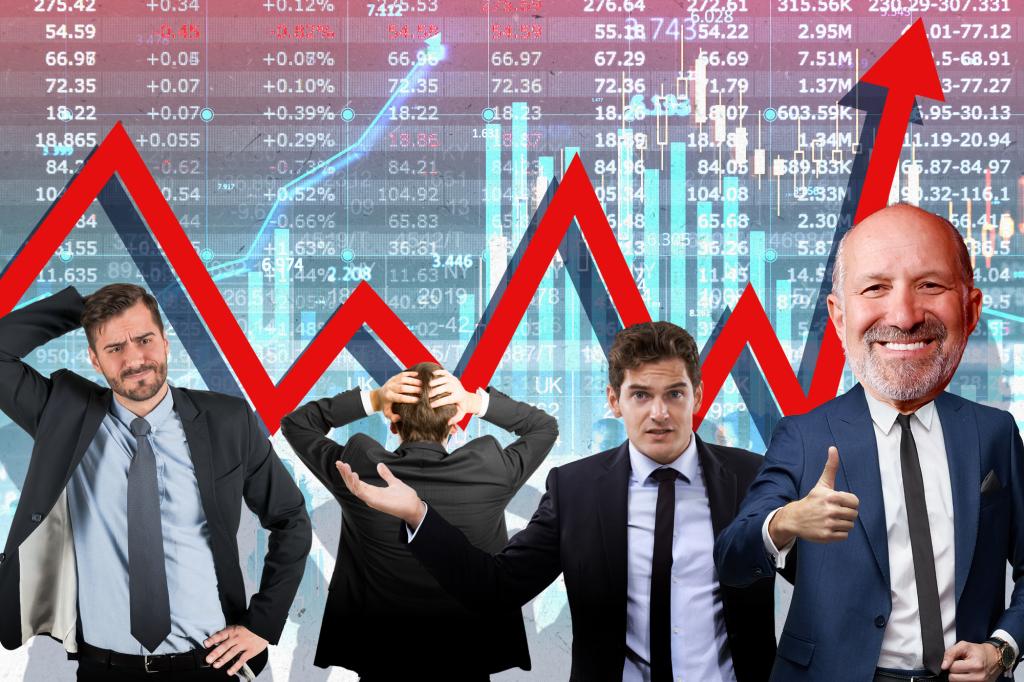“Either the entire street is wrong, or the good times will continue to roll.”
So said a top hedge fund manager, remarking recently to On The Money about the weird disconnect he’s seeing lately in how the market is pricing in Trump’s trade war.
What surprised him is the latest iteration of the market zig-zagging is that after freaking out, investors appear to be pricing in the Trump tariffs as a big bowl of nothing.
The recent maybe irrational exuberance comes even as Trump keeps throwing fuel on the tariff fire.
After pausing them on the world, including the most draconian levies on China, which supplies the US with cheap goods and keeps our inflation rate stable, he just blurted out that he’s doubling tariffs on steel and aluminum.
The market didn’t tank as it did during the early days of the tariff tantrum. In fact, there’s green on the screen for a policy that is supposed to slow growth and/or increase inflation, according to most economists.
So, what gives?
First, economists aren’t making the market bets you’re seeing. Asset managers, hedge funders, traders and a bunch of so-called mom-and-pop investors continue to show an appetite to buy, and digest bad news in the most favorable light.
The best I can tell is that they’re making a forward-looking bet that Trump, through his trusty and highly competent Treasury Secretary Scott Bessent, will negotiate all of the tariffs — even against super adversaries like China — down to something either meaningless or manageable for the economy to absorb.
Stocks will then trend higher on his deregulation and tax policy found in the “Big Beautiful Bill,” the thinking goes.
Commerce Secretary Howard Lutnick’s MAGA-inspired dream that tariffs on foreign goods will create a domestic manufacturing utopia will never materialize, because Lutnick is largely out of the picture. Bessent has taken the reins, and he’s crafting trade deals that will lead to stable economic growth, low inflation and high-tech manufacturing jobs the Trump tax and regulatory policy will create, or so the thinking goes.
So, what could go wrong? A lot, according to a few smart Wall Streeters I know as they look back at recent market history and figure out when was the last time the markets defied conventional wisdom and got things so wrong before an economic storm hit.
One big misread came in the run-up to the 2008 financial crisis. Every major CEO and most large investors (not all but most) viewed the 2007 “credit crunch,” where banks cut back lending as housing prices tanked, as simply a downturn in the economic cycle. A few Fed rate cuts, and presto, things would be back to normal.
Recall how the Dow hit then historic highs in October 2007 (around 14K), just before the bottom fell out early the following year. It began with bond insurers imploding, then subprime lenders, then Bear Stearns and Lehman Brothers.
By the end of September 2008, the meltdown hit nearly ever bank and Wall Street firm because the housing downturn was more than a downturn, it impaired the balance sheets of major financial institutions so much that most (except Jamie Dimon’s “fortress balance sheet” at JPMorgan) were on the verge of insolvency
After the financial collapse, and the government bailouts, came the Great Recession, which forever altered the political landscape. It ushered in a wave of left-wing (Barack Obama) and later right-wing populism (Donald Trump).
There are plenty of structural differences between 2008 and today. Our banks are pretty sound, but we have more debt, a lot more. We are more dependent on foreign buyers of the debt, without whom interest rates would be much higher as debt payments continue to grow.
The trade war has pissed off some of our foreign bond buyers, namely Japan and China.
Plus markets hate being surprised. If we’re experiencing a bit of irrational exuberance before the reality of higher baseline tariffs kick in no matter what deals are cut, if the economy does begin to falter and inflation does pickup, if foreign buyers don’t keep buying our debt and interest rates spike, the correction could be pretty brutal if history is any guide, traders tell On The Money.
Until that happens, it’s all blue skies ahead.
Read the full article here

